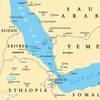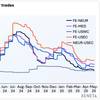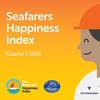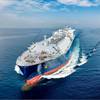Cruise Calls Add Fuel to Energy-Based Arctic Shipping Challenges
Arctic shipping operations are set for dramatic growth due to vast energy resources and a rise in cruise ship calls – but to maximise opportunities, the industry needs urgent solutions to challenges ranging from sovereignty claims to design and crewing for a hostile environment.
Some 200 delegates will discuss the latest issues at Arctic Shipping 2008 - the fourth annual conference in the world-leading series from Lloyd’s List Events - which takes place in , from April 8-10.
Among 50 government and industry-wide speakers, DNV senior principal surveyor Morten Meilaender-Larsen will explain the technical and human factors in risk evaluation for cold climate operations.
Meilaender-Larsen will go on to highlight crew issues including an extreme shortage of ice- experienced personnel.
Design and crew concerns over tankers, gas carriers and support vessels also apply to the fast expanding Arctic cruise sector, he warns: “These ships were not designed for ice and there is little relevant experience among their crews, so you have to ask questions about rescue and evacuation.”
A new aid to ice navigation will be described by Richard Hall, business development manager at Kongsberg Satellite Services of Norway.
The company’s Image Anywhere system provides real time access to high-resolution satellite images of ice conditions, enabling a ship to plot the safest and most economical route through or preferably around the ice. Launched last year, the system is currently in use with the Norwegian coastguard.“The aim is to improve safety and productivity in a hostile environment where human activity is increasing every year,” says Mr Hall. “EU trials in the Baltic in 2005 showed that such data offers potential time savings of 20%. And if a ship can avoid breaking ice, it will also save money by using less fuel and needing less hull maintenance.”Day 1 of the conference is devoted to policy and development including sovereignty and environmental issues, market sector assessments and investment needs for shipowners and industrial producers. Plans for the NW Passage and will be outlined following analysis of future sea ice trends and the strategic impact of ice-free routes.Day 2 focuses on ship design, covering shuttle tankers and LNG carriers, latest ice class concepts, new generation icebreakers, Azipod propulsion and equipment winterisation. The day ends with a choice of seven discussion groups on subjects including emergency response, ice class rules and navigation training.Day 3 features detailed presentations on ice navigation together with sessions on port operations and offshore support vessel demand and designs.
Arctic Shipping 2008 also includes a pre-conference visit to the on April 7 and a post-conference seminar on LNG operations on April 11.
Delegate fees of £1949 for the conference and seminar or £1599 for the conference only are reduced to £1299 and £1099 respectively for Russian participants. Further details and registration are available at www.arcticshipping2008.com








